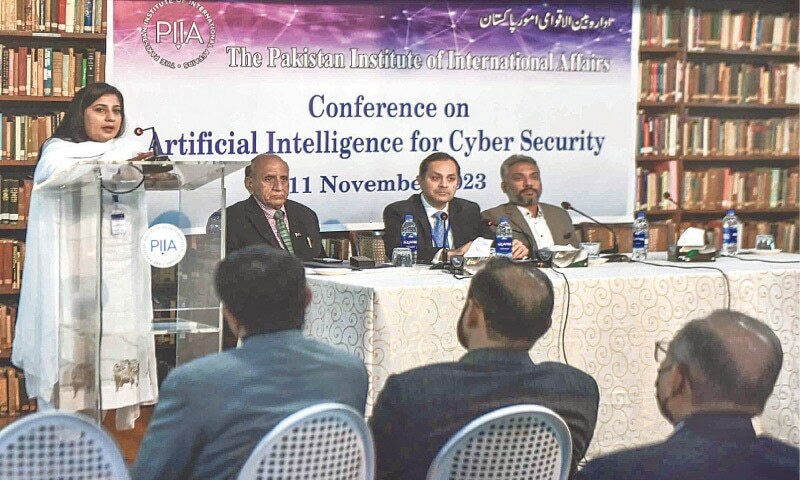According to the PIIA event, Pakistan is inadequately prepared for virtual warfare. The expert asserts that individuals who believed their cybersecurity was impervious were living in a delusional world.
During a conference in Karachi, experts highlighted that Pakistan lags more than two decades behind the global standards in cybersecurity. They emphasized the urgent need to adopt predictive cybersecurity integrated with artificial intelligence to effectively navigate the cyberspace landscape.
Hosted by the Pakistani Institute of International Affairs (PIIA), the conference focused on the role of Artificial Intelligence (AI) in Cybersecurity.
The speakers unanimously agreed on the necessity of raising awareness about cybersecurity challenges among the general public, particularly within academic institutions like universities. They recommended organizing webinars, seminars, and educational campaigns to disseminate this crucial information.
Ammar Hussain Jaffri, a former senior official at the Federal Investigation Agency (FIA) and the ex-director of the National Response Centre for Cyber Crime (N3RC), shared insights from his two-decade-long research in cybersecurity. He highlighted the significant disparity between Pakistan and India in terms of security measures taken, emphasizing the critical need to transition from reactive security approaches to predictive security powered by AI.
Jaffri illustrated how AI could uncover irregularities in systems, citing the example of fake passports and the manipulation of National Database and Registration Authority’s (NADRA) records to facilitate fraudulent activities.
Rahim Ali, the chief technology officer of an international outsourcing company, emphasized the intricate nature of cybersecurity, underscoring the integration of AI in security protocols. He warned about the potential catastrophic consequences of cyber attacks, painting a vivid picture of the devastating impact on a nation’s infrastructure and leadership.
Maliha Masood, an IT expert specializing in risk management and data security, highlighted the dichotomy between ethical and malicious actors in cyberspace. She cautioned against complacency regarding personal cybersecurity, stating that anyone assuming complete protection online was living in a false sense of security.
The experts stressed the importance of developing indigenous cybersecurity capabilities to mitigate risks associated with AI advancements and potential weapon manipulation.
In closing, Dr. Masuma Hasan, the chair of PIIA, expressed gratitude to the panelists for their valuable contributions.
The event commenced with remarks from Dr. Muazzam A. Khan Khattak of the Institute of Electrical and Electronic Engineers, Waqas Haider Khan Bangyal from Kohsar University, and Nudrat Nida from the National University of Sciences and Technology.






